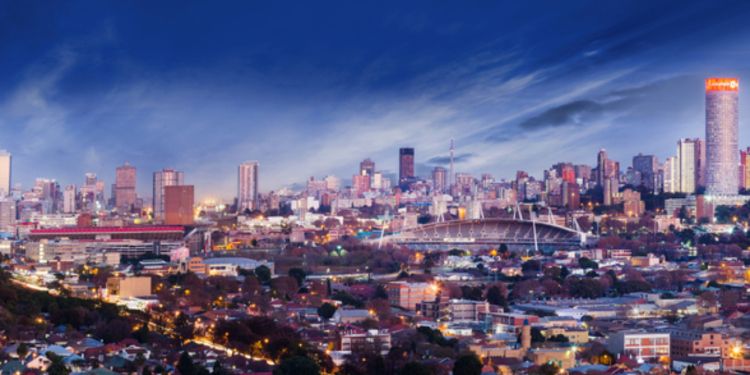Working in Johannesburg

Johannesburg, the provincial capital and largest city in Gauteng, the country's richest province, is South Africa's largest metropolis. It is not only the most densely populated city but also the one with the largest number of economically active people. Here is what you need to know if you are interested in working in Johannesburg.
Employment in Johannesburg
There is a shortage of skilled workers in Johannesburg in the accounting, finance, medical and engineering sectors. Employment opportunities in South Africa are extremely limited for foreign nationals, and most permits are only granted to qualified and experienced workers whose skills are in demand. Foreigners who fall into the Essential Skills Permit category are likely to find employment. The prospective employer of an Essential Skills Work Permit applicant does not have to prove that they have not found anyone in the local market, as this permit is only for highly skilled and experienced applicants who are in short supply in South Africa.
The last list that was updated in 2014 has just been amended and can be found on the government website. It now includes over 35,000 jobs in 53 different fields. Nevertheless, the process can be long and tedious as applicants must provide proof of years of training and expertise in their field, letters of recommendation from previous employers, have their degrees and qualifications assessed by the SAQA (South African Qualification Authority) and the Department of Home Affairs can be very picky. The duration of a work permit corresponds to the duration of the employment contract but cannot exceed five years. It is, however, renewable.
The job market in Johannesburg
Johannesburg is considered the economic center of the African continent, the center of the large-scale gold and diamond trade, and employs 12% of the country's workforce. It is the country's main industrial and financial metropolis. The city's contribution to the national economy is 16% and 40% for Gauteng province.
Johannesburg is the hub for local and international travel and freight. There are two international airports, and O.R. Tambo Airport is the largest on the African continent. The City Deep container terminal is known as the largest dry port in the world, with 50% of the goods arriving at the ports of Durban and Cape Town being delivered to Joburg.
Mining used to be one of the economic mainstays of the Witwatersrand, but due to dwindling reserves has gradually been supplanted by manufacturing and service industries and community and social services. However, South Africa remains the world's largest producer and exporter of gold, platinum, chrome and manganese.
Manufacturing industries include steel, cement, textiles, etc. A large engineering sector serves the needs of the mining industry. The economic strategy of this sector has been to promote high-value-added manufacturing.
The service sector includes banking, computer and information technology, real estate, broadcasting and print media, private health care, leisure, tourism, and wholesale and retail trade. The finance sector is an ever-growing sector.
The community and social services sector is growing rapidly and reflects the policy of improving public sector services in infrastructure, education and health. Transportation and communications are vital to the city's development and to the performance of sectors such as finance and telecommunications. Growth in the construction sector has been supported since 2006 by commercial developments and public investment in infrastructure programs.
Johannesburg, with more than 290,000 companies employing about 90,000 people, offers many more job opportunities for expatriates than other major cities in the country.
Most multinationals, virtually all national and international banks, insurance companies and construction companies are headquartered in Johannesburg, which has many business districts such as the CBD (Central Business District), Sandton, Rosebank, Roodepoort, etc.
Working conditions in Johannesburg
Working conditions and social protection are nothing like those enjoyed by an employee in Europe. The average gross monthly salary is 22800 Rands. Employers are not obliged to take out health insurance for their employees. However, many multinational companies offer compensation such as accommodation, schooling for children and medical coverage.
The work week is 45 hours for five working days, and vacations are 21 consecutive days plus public holidays.
How to find a job in Johannesburg
To find a job in Johannesburg, you can contact recruitment agencies, some of which are specialized in particular sectors, such as Search Partners International or Global Network Recruitment. Consult online job offers of local and national newspapers such as the Sunday Times, News 24, Daily Sun or websites offering international job offers such as Career Junction, PNet, Indeed. Some job websites are specialized in certain sectors: Career Web for information and communication technology jobs, Michael Page Africa for management positions, E-Financial Careers for finance, banking and insurance jobs.
There is also the possibility of starting your own business in South Africa. Business permits are not very complicated to obtain because the government strongly encourages the process.
Many expatriates in Johannesburg are young people and entrepreneurs. Many Europeans, especially French people, generally come with VIE (Volontariat International en Entreprise) or VIA (Volontariat International en Administration) contracts or to work for humanitarian associations. SMEs and French subsidiaries, Socomec, Sigfox, Sunna Design, and Eutelsat, established in Joburg, operate in the transport, energy, audiovisual, agri-food and business services sectors.
The Gauteng region has been heavily affected by the strict confines of the Covid 19 pandemic. The region lost over 66,000 jobs, and 42% of small businesses were forced to close. Activity in key sectors, mining and manufacturing, has declined dramatically.








